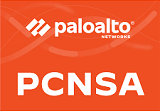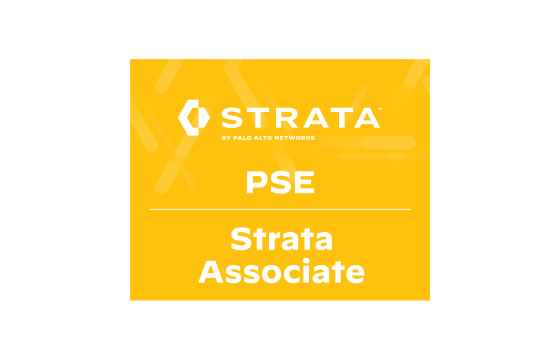- Home
- Palo Alto Networks Dumps
Top Palo Alto Networks Certifications
Top Palo Alto Networks Certifications
Palo Alto Networks Certification Exams
| Exam | Title | Files |
|---|---|---|
Exam Apprentice |
Title Palo Alto Networks Cybersecurity Apprentice |
Files 1 |
Exam NetSec-Generalist |
Title Palo Alto Networks - Network Security Generalist |
Files 1 |
Exam NGFW-Engineer |
Title Palo Alto Networks Certified Next-Generation Firewall Engineer |
Files 1 |
Exam PCCET |
Title Palo Alto Networks Certified Cybersecurity Entry-level Technician |
Files 1 |
Exam PCCP |
Title Palo Alto Networks Cybersecurity Practitioner |
Files 1 |
Exam PCCSE |
Title Prisma Certified Cloud Security Engineer |
Files 4 |
Exam PCDRA |
Title Palo Alto Networks Certified Detection and Remediation Analyst |
Files 1 |
Exam PCNSA |
Title Palo Alto Networks Certified Network Security Administrator |
Files 8 |
Exam PCNSC |
Title Palo Alto Networks Certified Network Security Consultant |
Files 1 |
Exam PCNSE |
Title Palo Alto Networks Certified Network Security Engineer |
Files 11 |
Exam PCSAE |
Title Palo Alto Networks Certified Security Automation Engineer |
Files 1 |
Exam PCSFE |
Title Palo Alto Networks Certified Software Firewall Engineer |
Files 1 |
Exam PSE Strata |
Title Palo Alto Networks System Engineer Professional - Strata |
Files 1 |
Exam PSE-Cortex |
Title Palo Alto Networks System Engineer Professional - Cortex (Version 2023) |
Files 1 |
Exam PSE-Prisma Cloud |
Title Palo Alto Networks System Engineer Professional - Prisma Cloud |
Files 1 |
Exam PSE-SASE |
Title Palo Alto Networks System Engineer Professional - SASE |
Files 1 |
Exam SD-WAN-Engineer |
Title Palo Alto Networks SD-WAN Engineer |
Files 1 |
Exam SecOps-Pro |
Title Palo Alto Networks Security Operations Professional |
Files 1 |
Exam SSE-Engineer |
Title Palo Alto Networks Security Service Edge Engineer |
Files 1 |
Exam XSIAM-Analyst |
Title Palo Alto Networks Certified XSIAM Analyst |
Files 1 |
Exam XSIAM-Engineer |
Title Palo Alto Networks XSIAM Engineer |
Files 1 |
Exam XSOAR-Engineer |
Title Palo Alto Networks XSOAR Engineer |
Files 1 |
The files are group by the exam number. You can also see the full list of files.
About Palo Alto Networks Certification Exam Dumps & Palo Alto Networks Certification Practice Test Questions
Pass your Palo Alto Networks certification exams fast by using the vce files which include latest & updated Palo Alto Networks exam dumps & practice test questions and answers. The complete ExamCollection prep package covers Palo Alto Networks certification practice test questions and answers, exam dumps, study guide, video training courses all availabe in vce format to help you pass at the first attempt.
Complete Guide to Palo Alto Networks Certification Paths
Palo Alto Networks is a global leader in cybersecurity solutions, providing next-generation firewalls, cloud security, endpoint protection, and security operations tools. As organizations increasingly rely on Palo Alto Networks products for threat prevention, network security, and cloud protection, skilled professionals who can implement, configure, and manage these solutions are in high demand. Palo Alto Networks certifications are designed to validate the knowledge, skills, and expertise of IT professionals in various aspects of cybersecurity, including network security, cloud security, automation, and security operations. These certifications not only demonstrate technical competency but also enhance career prospects and earning potential in the competitive cybersecurity landscape.
The certification program is structured into multiple levels, starting from foundational knowledge for beginners to expert-level credentials for highly experienced professionals. This guide provides a comprehensive overview of the certification paths, exam codes, prerequisites, exam details, and career benefits associated with each certification.
Overview of Palo Alto Networks Certification Paths
Palo Alto Networks offers a structured certification framework to help professionals progress in their cybersecurity careers. The certifications are divided into multiple levels and categories based on skills and expertise. The primary certification levels include:
1. Associate Level
The Associate level is designed for individuals new to cybersecurity or those seeking foundational knowledge in Palo Alto Networks technologies. This level focuses on basic network security concepts, firewall operations, and core product knowledge.
Certification: Accredited Configuration Engineer (ACE)
Exam Code: ACE-500
Prerequisites: None, ideal for beginners
Exam Details:
Duration: 90 minutes
Number of Questions: 60
Passing Score: 70%
Format: Multiple choice and scenario-based questions
The ACE certification validates foundational skills in configuring and managing Palo Alto Networks firewalls, understanding firewall policies, security zones, and basic threat prevention. It is the starting point for professionals aiming to advance into higher-level certifications.
2. Specialist Level
Specialist-level certifications are intended for professionals with some experience in network security and Palo Alto Networks solutions. These certifications focus on specific technologies, advanced firewall features, and use-case-based knowledge.
Certification Examples:
Firewall Troubleshooting Specialist (FTS) – Exam Code: FTS-300
Cloud Security Specialist (CSS) – Exam Code: CSS-310
Prerequisites: Associate-level certification or equivalent experience
Exam Details:
Duration: 90–120 minutes
Questions: 60–70 scenario-based and multiple-choice
Passing Score: 70–75%
Specialist certifications validate the ability to troubleshoot, optimize, and configure Palo Alto Networks solutions in real-world environments, helping professionals gain recognition for advanced skill sets in specific areas such as firewall operations or cloud security.
3. Professional Level
The Professional level is the most recognized and widely pursued certification path. It targets cybersecurity professionals with substantial experience in managing network security and Palo Alto Networks products.
Certification: Palo Alto Networks Certified Network Security Engineer (PCNSE)
Exam Code: PCNSE-12
Prerequisites: Recommended to have ACE certification and at least 1–2 years of hands-on experience
Exam Details:
Duration: 120 minutes
Number of Questions: 75–85
Passing Score: 70%
Format: Multiple choice, drag-and-drop, and scenario-based questions
The PCNSE certification validates a professional’s ability to design, deploy, configure, maintain, and troubleshoot advanced network security solutions using Palo Alto Networks technologies. It is highly respected by employers and often required for senior-level network security roles.
4. Expert Level
The Expert level certifications are intended for seasoned cybersecurity professionals who lead security operations and complex network architectures. These certifications assess deep technical expertise, strategic deployment knowledge, and the ability to manage enterprise-scale environments.
Certification: Palo Alto Networks Certified Security Automation Engineer (PCSAE)
Exam Code: PCSAE-500
Prerequisites: Professional-level certifications and 3–5 years of experience in network security or security automation
Exam Details:
Duration: 120–150 minutes
Questions: 80–90 scenario-based, practical simulation
Passing Score: 75%
Expert certifications highlight advanced capabilities in security automation, threat intelligence, and enterprise-scale network deployment, making certified professionals valuable assets for complex cybersecurity operations.
Exam Preparation Strategies
Preparing for Palo Alto Networks certifications requires a structured approach that combines theoretical knowledge with practical experience. The following strategies can help candidates succeed:
1. Understand the Exam Blueprint
Each certification provides an exam blueprint outlining the topics, exam structure, and weightage of sections. Candidates should review the blueprint thoroughly to focus on high-priority areas and understand the depth of knowledge required for each topic.
2. Hands-On Lab Practice
Practical experience is essential, especially for Professional and Expert-level certifications. Candidates should use lab environments or virtual setups to practice firewall configuration, policy creation, troubleshooting scenarios, and cloud security deployment. Hands-on labs enhance understanding and help retain knowledge for scenario-based questions.
3. Official Study Materials
Official study guides, training courses, and practice exams provide comprehensive coverage of exam topics. Candidates should leverage these resources to ensure they are familiar with the terminology, product features, and real-world application scenarios tested in the exams.
4. Join Study Groups and Forums
Networking with peers, joining study groups, and participating in online forums can provide valuable insights, tips, and exam strategies. Discussing real-world scenarios and troubleshooting challenges with others helps reinforce learning and exposes candidates to different perspectives.
5. Consistent Practice and Review
Consistent review of concepts, configuration scenarios, and practice questions is crucial. Candidates should simulate exam conditions to improve time management, accuracy, and confidence. Revisiting weak areas multiple times before the exam ensures a higher likelihood of success.
Career Benefits of Palo Alto Networks Certifications
Palo Alto Networks certifications offer significant advantages for cybersecurity professionals. Key career benefits include:
Enhanced Knowledge and Skills: Certifications validate technical expertise and hands-on skills, enabling professionals to manage and optimize network security effectively.
Higher Employability: Certified professionals are in demand across industries, including finance, healthcare, government, and technology sectors.
Career Advancement: Certifications provide a pathway to senior roles such as Security Engineer, Security Architect, Network Security Manager, and Security Automation Specialist.
Competitive Salaries: Certified professionals often command higher salaries compared to non-certified peers, reflecting their validated skill sets and experience.
Industry Recognition: Certifications demonstrate commitment to professional growth and mastery of Palo Alto Networks technologies, earning recognition from peers, employers, and industry leaders.
Introduction to Associate and Specialist Certifications
The Associate and Specialist certifications from Palo Alto Networks are the starting point for IT professionals looking to establish themselves in cybersecurity. These certifications provide foundational knowledge and specific technical skills related to network security, firewalls, cloud security, and threat prevention. Candidates at this level gain practical exposure to core technologies while developing the confidence to advance to professional-level certifications. Associate certifications focus on basic configuration and understanding of network security concepts, while Specialist certifications emphasize advanced troubleshooting, feature-specific knowledge, and use-case applications. Both levels are critical for building a strong foundation in cybersecurity practices and for preparing for higher-level certifications.
Accredited Configuration Engineer ACE-500 Certification Overview
The Accredited Configuration Engineer certification is designed for beginners in network security and for those seeking an entry point into Palo Alto Networks technologies. This certification validates the ability to configure and manage basic firewall operations, understand security policies, and apply threat prevention measures. Candidates preparing for the ACE-500 exam should focus on understanding firewall architecture, network traffic flow, zones, NAT policies, and fundamental security rule configuration. The exam is 90 minutes long and consists of 60 multiple-choice and scenario-based questions. A passing score of 70 percent is required to earn the certification. ACE certification provides a clear pathway to specialist-level certifications and prepares candidates for more complex configurations and real-world network security challenges.
Exam Objectives for ACE-500
Candidates preparing for the ACE-500 exam need to be proficient in several core areas. These include understanding the role of security zones, configuring basic firewall rules, managing network address translation, implementing threat prevention features, and monitoring logs and traffic patterns. Knowledge of the Palo Alto Networks interface and configuration tools is essential. Candidates should be able to perform basic troubleshooting of common network issues, verify policy enforcement, and maintain secure configurations. The ACE certification emphasizes hands-on practice and understanding of the theoretical concepts behind each configuration. Successful candidates demonstrate their ability to deploy and manage firewall features effectively in small to medium network environments.
Specialist Certifications Overview
Specialist certifications focus on targeted skills within the Palo Alto Networks technology suite. These certifications are designed for professionals who have completed the associate-level certification or have equivalent experience in network security. Specialist certifications allow candidates to demonstrate expertise in specific areas, such as firewall troubleshooting, cloud security deployment, advanced threat prevention, or specific platform modules. These certifications are valuable for professionals who wish to gain recognition for advanced skills in their chosen domain. Specialist-level exams typically range from 90 to 120 minutes, with 60 to 70 scenario-based or multiple-choice questions. The passing score generally ranges between 70 and 75 percent.
Firewall Troubleshooting Specialist FTS-300
The Firewall Troubleshooting Specialist certification focuses on advanced configuration and problem-solving skills related to Palo Alto Networks firewalls. Candidates must demonstrate proficiency in identifying misconfigurations, resolving traffic issues, optimizing policy rules, and managing complex network environments. The FTS-300 exam covers topics such as session management, rule ordering, logging and monitoring, troubleshooting network connectivity, and diagnosing common errors. Practical experience in lab environments is crucial for success, as many exam scenarios require hands-on troubleshooting. This certification enhances a professional’s ability to manage and maintain secure network operations in real-world enterprise environments and prepares them for professional-level certifications such as PCNSE.
Cloud Security Specialist CSS-310
The Cloud Security Specialist certification validates skills in deploying and managing cloud security solutions using Palo Alto Networks technologies. Candidates should understand public cloud environments, cloud-native security challenges, and how to integrate Palo Alto Networks cloud security products. The CSS-310 exam includes topics such as virtual firewall deployment, cloud access security broker configuration, threat prevention in cloud environments, identity and access management, and monitoring cloud traffic. Candidates should be familiar with cloud architecture, network segmentation, and policy enforcement in multi-cloud scenarios. Practical lab experience with cloud platforms and security configurations is recommended to achieve proficiency. The certification is valuable for professionals who manage cloud security or implement hybrid cloud environments.
Exam Preparation for Specialist Certifications
Preparation for specialist-level exams requires a combination of theoretical study, hands-on labs, and scenario practice. Candidates should first review the exam objectives and understand the weightage of each topic. Structured training courses and study guides can help cover the breadth of exam content. Practical lab exercises should focus on advanced configurations, troubleshooting network issues, and simulating real-world deployment scenarios. Study groups and discussion forums can also provide insights into common challenges and exam strategies. Candidates should dedicate time to practicing with virtual environments or lab equipment to ensure they can apply knowledge in practical situations. Consistent review and practice of configuration scenarios significantly improve exam performance and confidence.
Skills Gained from Specialist Certifications
Specialist certifications provide candidates with advanced skills that are immediately applicable in real-world network security and cloud environments. Candidates learn to analyze and resolve firewall configuration issues, deploy cloud security solutions, monitor security logs, and implement advanced threat prevention measures. These certifications also improve problem-solving abilities, enhance understanding of network traffic behavior, and develop the capacity to optimize security policies. Professionals who hold specialist certifications are well-equipped to handle complex network environments, manage cloud deployments, and contribute to enterprise-level security operations. These skills form a strong foundation for progression to professional and expert-level certifications.
Career Benefits of Associate and Specialist Certifications
Obtaining associate and specialist certifications provides multiple career benefits. These credentials demonstrate commitment to professional growth and mastery of core cybersecurity technologies. Certified professionals are better positioned for entry-level and mid-level roles in network security, firewall management, cloud security operations, and IT infrastructure management. Organizations often recognize these certifications as validation of technical competence and practical skills. Certified professionals may see opportunities for promotions, higher responsibilities, and salary increases. In addition, these certifications provide a pathway to professional-level certifications, which further enhance career advancement prospects and recognition in the cybersecurity industry.
Practical Application of Skills
The skills gained from associate and specialist certifications are directly applicable in enterprise IT environments. Professionals can configure and manage firewall policies, troubleshoot network connectivity issues, deploy cloud security solutions, and monitor security events effectively. Hands-on practice in lab environments or real-world deployments enhances problem-solving skills and builds confidence. These skills are essential for maintaining secure network operations, preventing threats, and ensuring compliance with organizational security policies. Professionals who apply these skills consistently are better prepared for professional-level responsibilities, including network security engineering, cloud security management, and threat response operations.
Introduction to Professional-Level Certifications
Professional-level certifications from Palo Alto Networks are designed for experienced cybersecurity professionals who manage and deploy advanced network security solutions. These certifications validate technical expertise, real-world problem-solving skills, and the ability to handle complex security environments. Professional certifications build on the foundation established by associate and specialist certifications, preparing candidates for enterprise-level responsibilities. Professionals who achieve these certifications are often employed as network security engineers, security architects, or cloud security specialists. The primary professional-level certification is the Palo Alto Networks Certified Network Security Engineer, which is highly respected in the cybersecurity industry.
Palo Alto Networks Certified Network Security Engineer PCNSE-12 Overview
The PCNSE-12 certification is intended for network security professionals who design, deploy, configure, and troubleshoot Palo Alto Networks security solutions. It is one of the most sought-after credentials in the industry, demonstrating mastery of firewall configuration, policy management, threat prevention, VPN deployment, and security automation. Candidates for the PCNSE-12 exam should have at least one to two years of hands-on experience with Palo Alto Networks products or equivalent knowledge from completing associate and specialist-level certifications. The exam duration is 120 minutes and consists of 75 to 85 questions that include multiple-choice, drag-and-drop, and scenario-based questions. A passing score of 70 percent is required to earn the certification.
Exam Objectives for PCNSE-12
The PCNSE-12 exam evaluates a wide range of skills essential for professional network security management. Candidates must demonstrate the ability to design security architectures, configure firewalls and VPNs, implement advanced security policies, and manage threat prevention solutions. Other objectives include monitoring traffic, analyzing logs, troubleshooting network issues, optimizing firewall performance, and integrating Palo Alto Networks solutions with enterprise networks. Candidates should also understand cloud security, automation workflows, and best practices for network segmentation. The exam emphasizes practical application of knowledge, requiring candidates to analyze complex scenarios and provide effective solutions based on real-world deployment requirements.
Firewall Configuration and Management Skills
Professional-level candidates must be proficient in firewall configuration and management. This includes setting up security policies, configuring NAT rules, managing network zones, and enabling threat prevention features such as antivirus, anti-spyware, and intrusion prevention systems. Candidates should understand the behavior of sessions, traffic flow, and policy evaluation order. Managing firewall updates, software patches, and subscriptions is also essential. These skills are critical for ensuring continuous network security and compliance with organizational security policies. Hands-on experience in configuring firewalls for enterprise networks significantly enhances candidates’ ability to perform effectively in the exam and in real-world environments.
VPN and Remote Access Management
A key component of PCNSE-12 certification is understanding VPN technologies and secure remote access. Candidates must configure site-to-site and remote-access VPNs, implement authentication methods, and troubleshoot connectivity issues. Knowledge of IPSec, SSL VPNs, and certificate-based authentication is essential. VPN deployment must consider network segmentation, routing, and policy enforcement to maintain security while enabling secure access for remote users and branch offices. Practical experience with VPN configuration in lab environments helps candidates understand traffic encryption, tunneling, and secure communication between networks.
Threat Prevention and Advanced Security Policies
Professional-level certifications require expertise in threat prevention and advanced security policy management. Candidates must implement antivirus, anti-spyware, vulnerability protection, URL filtering, and threat intelligence services. Configuring security policies to prevent malware, ransomware, and intrusion attacks is a critical skill. Candidates should also understand security policy optimization, logging, monitoring, and incident response workflows. Scenario-based exam questions often test the ability to identify security gaps, propose corrective actions, and apply policies effectively to complex network topologies. Advanced knowledge of content inspection, SSL decryption, and application-layer security is essential for professional-level candidates.
Cloud Security Integration
Integration of cloud security solutions is increasingly important for enterprise networks. PCNSE-12 candidates must understand how to deploy Palo Alto Networks security solutions in public, private, and hybrid cloud environments. Key skills include configuring virtual firewalls, securing cloud workloads, implementing cloud-native policies, and monitoring cloud traffic for threats. Candidates should be familiar with identity and access management, cloud segmentation, and compliance requirements. Practical experience with cloud security platforms and understanding of cloud architecture principles improve candidates’ ability to deploy secure and scalable solutions in enterprise environments.
Security Automation and Scripting
Professional-level certifications also evaluate knowledge of security automation, scripting, and integration with security orchestration tools. Candidates should be able to automate firewall policies, log analysis, threat response, and reporting tasks using scripting languages and API integrations. Understanding automated workflows reduces manual configuration errors, improves response times, and enhances overall network security efficiency. Candidates with skills in automation are better prepared for roles that require managing large-scale networks, multiple firewalls, or hybrid environments with complex security requirements.
Exam Preparation for PCNSE-12
Preparing for the PCNSE-12 exam requires a structured approach combining study materials, hands-on labs, and practical scenario exercises. Candidates should review the official exam blueprint to understand the topics, question formats, and weightage for each section. Completing practice exams and simulations helps develop familiarity with the types of questions asked and improves time management. Hands-on lab experience is critical, as scenario-based questions often require configuring firewalls, troubleshooting issues, and applying policies in simulated enterprise networks. Regular review, scenario analysis, and application of concepts in lab environments improve retention and increase the likelihood of exam success.
Real-World Application of PCNSE-12 Skills
The skills gained from PCNSE-12 certification are directly applicable in enterprise IT environments. Certified professionals can design secure network architectures, deploy firewalls and VPNs, configure advanced security policies, and manage threat prevention solutions. These skills are critical for ensuring compliance, protecting against malware and intrusion threats, and maintaining secure communication channels. Professionals can also integrate cloud security solutions, implement automated security workflows, and monitor network traffic effectively. Real-world application of these skills improves operational efficiency, reduces security risks, and enhances the overall effectiveness of enterprise cybersecurity programs.
Career Benefits of Professional-Level Certifications
Professional-level certifications offer significant career benefits for cybersecurity professionals. These credentials demonstrate advanced technical expertise, hands-on skills, and the ability to manage complex security environments. Certified professionals are well-positioned for senior-level roles such as network security engineer, security architect, cloud security specialist, or security operations manager. Organizations value professional certifications as validation of technical competence and practical problem-solving abilities. Professionals who earn PCNSE-12 and other professional-level certifications often have access to higher salaries, career advancement opportunities, and recognition in the cybersecurity industry. These certifications also provide a pathway to expert-level credentials, further enhancing career growth and industry credibility.
Introduction to Expert-Level Certifications
Expert-level certifications are the pinnacle of the Palo Alto Networks certification path. They are designed for highly experienced cybersecurity professionals who manage complex network security environments, implement advanced security strategies, and oversee enterprise-scale operations. These certifications validate deep technical knowledge, strategic planning abilities, and advanced problem-solving skills. Expert-level credentials demonstrate that a professional can not only configure and manage security solutions but also design, automate, and optimize security infrastructure to meet organizational requirements. Professionals who earn expert certifications are often entrusted with leading security initiatives, implementing automation, and ensuring compliance across multiple networks and cloud environments.
Palo Alto Networks Certified Security Automation Engineer PCSAE-500 Overview
The Palo Alto Networks Certified Security Automation Engineer certification focuses on the ability to design and implement automated security workflows, integrate security tools, and optimize operations across complex networks. Candidates should have extensive experience in network security, firewall management, threat prevention, cloud security, and security orchestration. The PCSAE-500 exam assesses the candidate's ability to automate repetitive tasks, develop scripts, configure automated responses to threats, and integrate multiple security systems. The exam duration is 120 to 150 minutes and consists of 80 to 90 scenario-based and practical simulation questions. A passing score of 75 percent is required to earn the certification. Candidates are expected to have completed professional-level certifications and have three to five years of experience in network security or security automation.
Exam Objectives for PCSAE-500
The PCSAE-500 exam evaluates a wide range of skills that are essential for expert-level cybersecurity professionals. Candidates must demonstrate the ability to develop and implement automated workflows for threat detection and response, integrate security tools using APIs and scripts, and monitor and optimize enterprise security operations. The exam also assesses knowledge of advanced firewall configurations, threat intelligence integration, cloud security automation, and security orchestration strategies. Candidates should be able to analyze complex network environments, identify potential security risks, and implement automated solutions to improve response times and operational efficiency. The exam emphasizes practical application, requiring candidates to solve real-world scenarios using automation tools and strategic planning.
Advanced Security Automation Skills
Expert-level candidates must be proficient in automating security processes to reduce manual effort and improve operational efficiency. Skills include developing scripts for firewall policy deployment, automating log analysis and reporting, and configuring automated alerts for potential threats. Candidates should also be able to integrate threat intelligence feeds into security workflows and develop automated responses to incidents. Automation improves accuracy, reduces human error, and allows security teams to respond faster to evolving threats. Hands-on experience with security orchestration, automation, and response tools is critical for demonstrating competence in this area and for successfully passing the PCSAE-500 exam.
Strategic Security Deployment
Strategic deployment skills are a core component of expert-level certifications. Candidates must demonstrate the ability to design enterprise security architectures, implement advanced firewall strategies, and integrate security solutions across multiple networks and cloud environments. Skills include planning network segmentation, configuring redundant firewalls, optimizing traffic flow, and ensuring high availability. Candidates should understand compliance requirements, risk assessment, and security best practices when deploying solutions at scale. Real-world scenarios often test the ability to develop comprehensive deployment plans, troubleshoot complex issues, and maintain security across dynamic environments. Professionals who excel in strategic deployment provide organizations with robust, scalable, and resilient security architectures.
Threat Intelligence Integration
Expert-level candidates must be proficient in integrating threat intelligence into security operations. Skills include subscribing to threat feeds, analyzing indicators of compromise, and configuring automated responses to emerging threats. Threat intelligence integration helps organizations proactively prevent attacks, detect anomalies, and respond effectively to security incidents. Candidates should understand how to correlate threat data with network activity, prioritize responses, and implement policies that mitigate risk without disrupting operations. Practical experience in using threat intelligence platforms, SIEM tools, and automation scripts enhances the ability to deploy and manage intelligent security solutions in enterprise environments.
Cloud Security Automation
As organizations increasingly adopt cloud technologies, expert-level professionals must be able to secure hybrid and multi-cloud environments. Candidates should be skilled in deploying virtual firewalls, configuring cloud-native security controls, automating cloud policy enforcement, and monitoring traffic for anomalies. Skills include integrating identity and access management, enforcing network segmentation, and ensuring compliance with regulatory standards. Automation in cloud security reduces manual configuration errors, speeds up threat response, and ensures consistent policy enforcement across cloud environments. Hands-on experience with cloud platforms and automated security workflows is essential for candidates seeking PCSAE-500 certification.
Exam Preparation for Expert-Level Certifications
Preparing for expert-level exams requires a comprehensive approach that combines advanced study, extensive hands-on practice, and scenario-based problem solving. Candidates should review the official exam objectives, understand the exam format, and focus on real-world application of skills. Structured lab environments are critical for practicing automation scripts, integrating security tools, and simulating complex network scenarios. Candidates should also study case studies, analyze common deployment challenges, and develop strategies for optimizing security operations. Time management, consistent practice, and familiarity with automation tools are essential for success. Regular review of advanced firewall configurations, cloud security deployments, and threat intelligence workflows ensures a strong grasp of key concepts.
Real-World Applications of Expert-Level Skills
Expert-level certifications provide skills that are directly applicable in enterprise IT environments. Professionals can automate firewall policy deployment, configure advanced threat prevention systems, integrate multiple security tools, and optimize network security operations. They can design resilient network architectures, ensure compliance, monitor security logs, and respond to incidents efficiently. Expert skills enable organizations to reduce risk, increase operational efficiency, and maintain robust security posture across complex networks and cloud environments. Professionals with these skills are capable of leading security teams, implementing strategic initiatives, and deploying scalable automated solutions that align with business objectives.
Career Benefits of Expert-Level Certifications
Expert-level certifications offer significant advantages for cybersecurity professionals seeking senior-level roles. These credentials demonstrate mastery of advanced security technologies, automation, and strategic deployment. Certified professionals are recognized as experts in the industry and are often entrusted with leading security initiatives, managing large-scale networks, and implementing enterprise-wide automation strategies. Career benefits include access to high-level management positions, increased salary potential, and opportunities to influence organizational security policies. Expert certifications also enhance credibility, providing professionals with recognition from peers, employers, and industry leaders as highly skilled cybersecurity specialists.
Continuous Learning and Professional Development
Expert-level certification is not the end of a professional's learning journey. Cybersecurity is an ever-evolving field, and continuous learning is necessary to stay current with emerging threats, new technologies, and evolving best practices. Professionals should engage in ongoing training, attend industry conferences, participate in workshops, and keep up with new features and updates in security solutions. Continuous learning ensures that experts remain effective in their roles, maintain certification relevance, and contribute to the development of security strategies that protect organizations from advanced cyber threats.
Conclusion
Expert-level certifications represent the highest level of achievement in the Palo Alto Networks certification path. They validate advanced skills in security automation, strategic deployment, cloud security integration, threat intelligence, and enterprise security management. Candidates must prepare thoroughly through study, hands-on practice, and scenario-based exercises to succeed. The knowledge and skills gained from expert-level certifications are directly applicable to real-world environments, enabling professionals to design resilient security architectures, automate security operations, and lead complex initiatives. Expert certifications provide significant career benefits, including recognition as an industry specialist, access to senior-level roles, and opportunities for strategic influence within organizations.
Latest questions and answers in vce file format are uploaded by real users who have taken the exam recently and help you pass the Palo Alto Networks certification exam using Palo Alto Networks certification exam dumps, practice test questions and answers from ExamCollection. All Palo Alto Networks certification exam dumps, practice test questions and answers, study guide & video training courses help candidates to study and pass the Palo Alto Networks exams hassle-free using the vce files!
Palo Alto Networks Video Courses
Site Search:












Has anyone used the Palo Alto files to study with and if so are they useful.
Can anyone vouch for the validity of Palo Exams? There does not seem to be any comments about them.
hi please assist looking for
1. Test - Palo Alto Networks Accredited Systems Engineer (PSE): Foundation Accreditation Exam
2. Test - Palo Alto Networks Accredited Systems Engineer (PSE): Platform Associate Accreditation Exam
Nice website for certification
what is success rate for CCSA,CCSE PNSCE